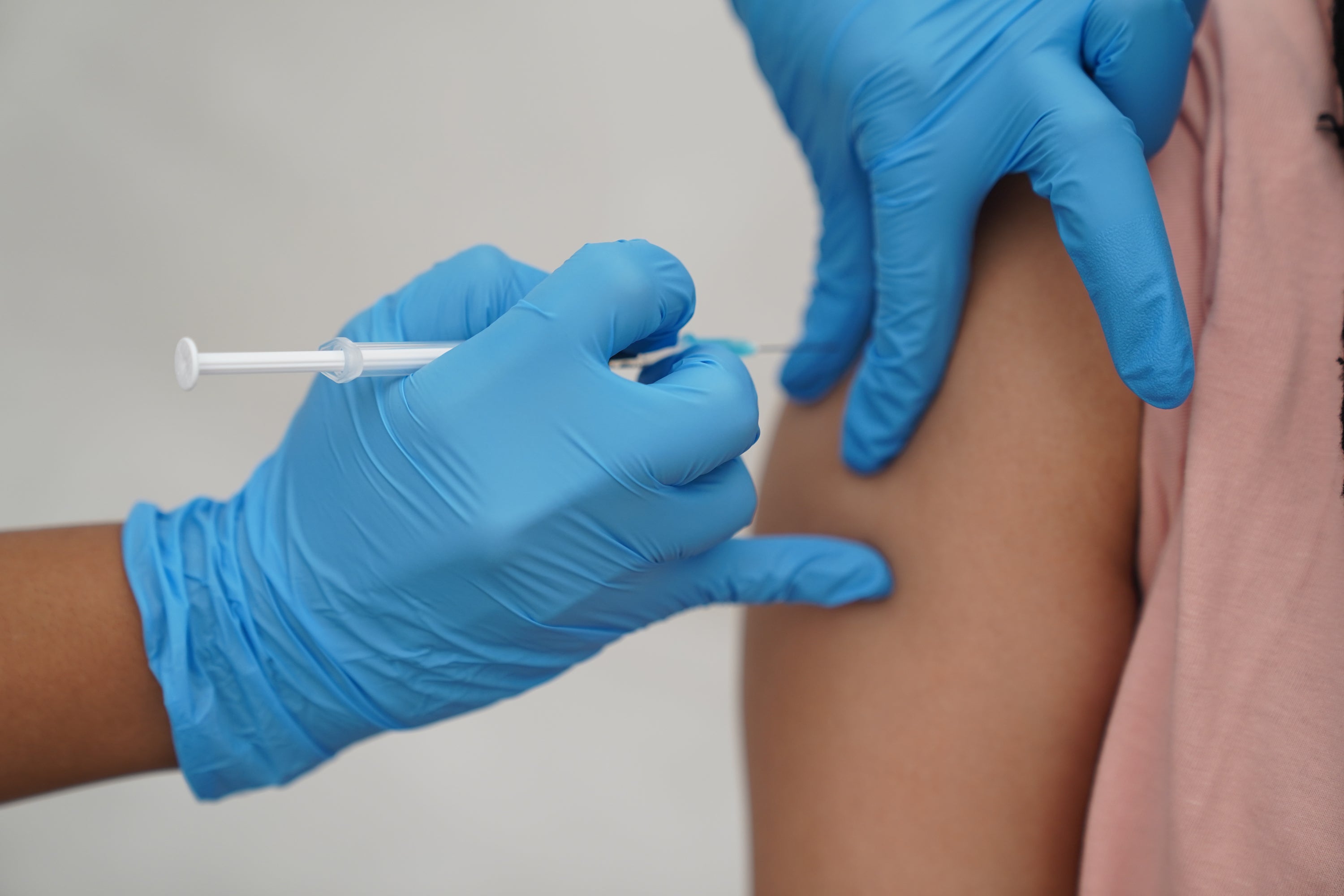Covid pandemic will not be over until ‘vaccine crisis’ is addressed, says WHO
The World Health Organisation’s Dr Tedros Adhanom Ghebreyesus said ‘no country can vaccinate its way out of the pandemic alone’.

Your support helps us to tell the story
From reproductive rights to climate change to Big Tech, The Independent is on the ground when the story is developing. Whether it's investigating the financials of Elon Musk's pro-Trump PAC or producing our latest documentary, 'The A Word', which shines a light on the American women fighting for reproductive rights, we know how important it is to parse out the facts from the messaging.
At such a critical moment in US history, we need reporters on the ground. Your donation allows us to keep sending journalists to speak to both sides of the story.
The Independent is trusted by Americans across the entire political spectrum. And unlike many other quality news outlets, we choose not to lock Americans out of our reporting and analysis with paywalls. We believe quality journalism should be available to everyone, paid for by those who can afford it.
Your support makes all the difference.The Omicron variant has demonstrated “just how perilous and precarious our situation is”, global health leaders have said.
The World Health Organisation (WHO) said the emergence of the variant serves a reminder that “Covid-19 is not done with us”.
Addressing a special session of the World Health Assembly, WHO director general Dr Tedros Adhanom Ghebreyesus warned that “hard-won gains could vanish in an instant”.
He warned that the pandemic will not be over until the “vaccine crisis” has ended, highlighting that low income countries have received just 0.6% of the world’s Covid vaccines.
G20 countries have received 80% of the world’s vaccines, he added.
Dr Tedros warned that “no country can vaccinate its way out of the pandemic alone”.
He said: “Instead of meeting in the aftermath of the pandemic, we are meeting as a fresh wave of cases and deaths crashes into Europe, with untold and uncounted deaths around the world.
“And although other regions are seeing declining or stable trends, if there’s one thing we have learned, it’s that no region, no country, no community and no individual is safe until we are all safe.
“The emergence of the highly-mutated Omicron variant underlines just how perilous and precarious our situation is.
“South Africa and Botswana should be thanked for detecting, sequencing and reporting this variant, not penalised.
“Indeed, Omicron demonstrates just why the world needs a new accord on pandemics: our current system disincentives countries from alerting others to threats that will inevitably land on their shores.
“We don’t yet know whether Omicron is associated with more transmission, more severe disease, more risk of reinfections, or more risk of evading vaccines. Scientists at WHO and around the world are working urgently to answer these questions.
“We shouldn’t need another wake-up call; we should all be wide awake to the threat of this virus.
Omicron’s very emergence is another reminder that although many of us might think we are done with Covid-19, it is not done with us
“But Omicron’s very emergence is another reminder that although many of us might think we are done with Covid-19, it is not done with us.
We are living through a cycle of panic and neglect. Hard-won gains could vanish in an instant.
“Our most immediate task, therefore, is to end this pandemic.”
But he warned that the pandemic will not end “unless we solve the vaccine crisis”, adding: “A year ago, as we began to see some countries striking bilateral deals with manufacturers, we warned that the poorest and most vulnerable would be trampled in the global stampede for vaccines. And that is exactly what has happened.
“More than 80% of the world’s vaccines have gone to G20 countries; low-income countries, most of them in Africa, have received just 0.6% of all vaccines.
“We understand and support every government’s responsibility to protect its own people. It’s natural.
“But vaccine equity is not charity; it’s in every country’s best interests. No country can vaccinate its way out of the pandemic alone.
“The longer vaccine inequity persists, the more opportunity this virus has to spread and evolve in ways we cannot predict nor prevent.”
The WHO has called on countries around the world to back the pledge to vaccinate 40% of the population of every country by the end of this year, and 70% by the middle of next year.
It warned that 103 countries still have not reached the 40% target, and more than half of them are at risk of missing it by the end of the year – most of them in Africa.
On booster injections, Dr Tedros added: “WHO’s position remains that health workers, older people and other at-risk groups must be vaccinated first in all countries before those at low risk of serious disease, and before boosters are given to already-vaccinated healthy adults.”
Former prime minister, Gordon Brown said that only 7% of people in Africa have been vaccinated and “hardly any tests” had been done on the continent “so you don’t detect things quickly enough”.
Mr Brown, who is ambassador for global health financing at the World Health Organisation, told Sky News: “When the G7 ministers meet they should agree that they will co-ordinate a month-by-month plan to get vaccines out to Africa and to help them get testing equipment.
“And when the World Health Assembly meets, which is this morning, they should agree on a new treaty so that we can prevent pandemics and deal with them properly in the years to come.”
Dr Tedros added: “The time has come for countries to agree on a common, binding approach to a common threat that we cannot fully control nor prevent – a threat that comes from our relationship with nature itself.”